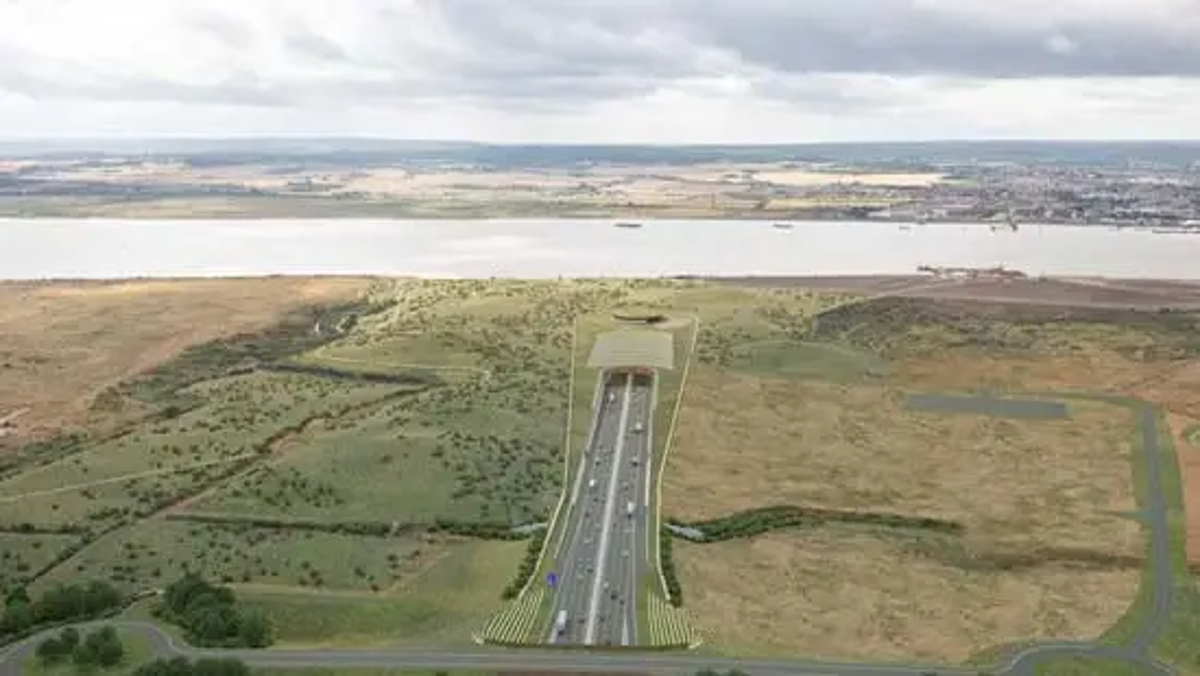‘Incredibly frustrating’: Delay to £9bn Lower Thames Crossing condemned
The government’s decision to significantly delay a verdict on whether to continue with the UK’s biggest road project has been condemned by transport and business groups. The £9bn Lower Thames Crossing (LTC), a road tunnel linking Kent and Essex, was already facing backlash over mounting costs and a £300m planning application which totals a whopping [...]


The government’s decision to significantly delay a verdict on whether to continue with the UK’s biggest road project has been condemned by transport and business groups.
The £9bn Lower Thames Crossing (LTC), a road tunnel linking Kent and Essex, was already facing backlash over mounting costs and a £300m planning application which totals a whopping 360,000 pages, or 66 miles in length if laid out end-to-end.
In a written statement to parliament on Monday evening, transport secretary Louise Haigh said it was “necessary” to extend the deadline on the LTC’s planning application to May 2023.
She said the decision would give more time to consider the application and “any decisions made as part of the spending review.”
Haigh had been expected to sign off a development consent order (DCO) last Friday, following recommendations from the UK planning inspectorate three months ago.
“The decision to set a new deadline is without prejudice to the decision on whether to grant the application development consent,” she added.
The announcement will pile further pressure on the government to revitalise the UK’s beleaguered infrastructure sector, with a string of nationally significant projects, the most high-profile being HS2, grappling with huge delays and mounting costs in recent years.
Separate revelations on Tuesday, however, confirmed HS2 would terminate at its long-delayed Euston terminus, which had been shrouded in uncertainty throughout the last year.
“This delay is incredibly frustrating for all of us committed to unlocking the future prosperity of the Thames Estuary. The longer we wait, the more businesses and communities across the region suffer,” Kate Willard, Chair of the Thames Estuary Growth Board, said.
“The Lower Thames Crossing is not just vital for reducing congestion and driving long-term growth, but also for delivering the UK’s first hydrogen-powered infrastructure project, which will kickstart a green energy revolution in the region. Every delay means missing out on this crucial opportunity to lead the way in sustainable development.”
The LTC, a 14-mile long road and tunnel, was masterminded with the intention of relieving pressure on the highly congested Dartford Crossing.
The Road Haulage Association (RHA), the lobby group for the UK’s lorry sector, said it was “deeply disappointing by the delay, claiming the crossing would almost double capacity across the Thames east of London and inject up to £40bn into the UK economy.
“This is a transformative roads improvement project that could create a more resilient road network and unlock investment opportunities to boost UK business; it would reduce journey times and improve efficiencies for our sectors,” Richard Smith, RHA Managing Director, said.
David Wells, chief executive of Logistics UK, formerly the Freight Transport Association, said the logistics industry was “united” in its opinion that the LTC “needs to be built” and that further delay would be met with “bitter disappointment and frustration” up and down the country.
Matt Palmer, the infrastructure veteran heading up the Lower Thames Crossing, told City A.M. in February that projects were being delayed due to political instability. “In the UK, what we have in more democratic worlds, whether it be in Europe… or even in the States, is you tend to get swung more by the political cycle.”



